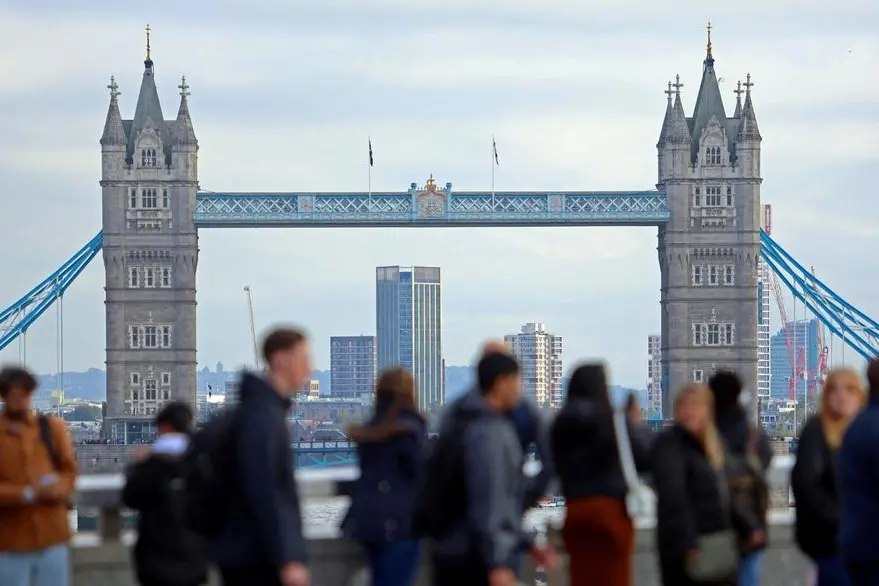PHOTO
British inflation unexpectedly held steady at 4.0% in January, defying forecasts of a rise, official data showed, offering relief for the Bank of England (BoE) and Prime Minister Rishi Sunak too ahead of a national election expected this year.
Economists polled by Reuters had expected an increase in the annual rate to 4.2%.
Consumer price inflation - which surged as high as a 11.1% in October 2022 - is expected to fall further in the coming months, paving the way for the BoE to start cutting borrowing costs from their 16-year high.
Sterling weakened against the dollar and the euro after the inflation data was published.
Investors added to their bets on the BoE cutting interest rates this year, putting a roughly 72% chance of a first reduction coming in June, compared with only a 40% chance on Tuesday after a surprise jump in U.S. inflation.
"Overall, the latest inflation data should reassure the Monetary Policy Committee that the time to start cutting interest rates is approaching," Martin Beck, chief economic advisor to the EY ITEM Club, said.
BoE Governor Andrew Bailey is due to speak to British lawmakers at 1500 GMT on Wednesday.
Britain's core inflation, which excludes volatile food, energy, alcohol and tobacco prices, was also unchanged at 5.1%, the Office for National Statistics said.
Services inflation - an indicator of domestic price pressures - rose to 6.5% from 6.4% in December but was not as strong as the BoE had expected.
The British central bank fears rapid wage growth - which makes up much of the inflation rate in the services sector - could add more inflationary pressure across the economy.
Data published on Tuesday showed regular wages rose by an annual 6.2% in the last three months of 2023, the slowest increase in more than a year but about double the pace the BoE views as consistent with getting inflation back sustainably to 2%.
"Inflation never falls in a perfect straight line, but the plan is working," finance minister Jeremy Hunt said. "We have made huge progress in bringing inflation down from 11% and the Bank of England forecast that it will fall to around 2% in a matter of months."
LIVING STANDARDS HIT
MPC member Jonathan Haskel, one of two policymakers who voted to raise interest rates at the BoE's most recent meeting, last week told Reuters he would need to see more evidence of inflation pressures weakening before changing his stance.
Samuel Tombs, an economist with Pantheon Macroeconomics, estimated on Wednesday that a gauge of core services prices that the BoE is watching closely rose by a modest 1.2% month-on-month. Tombs had initially said the measure fell, which could have been evidence of inflation pressures weakening, but corrected his estimate.
In further welcome news for consumers, food inflation fell for the first time in monthly terms since September 2021, dropping by 0.4% from December.
High inflation has impacted British households' living standards over the last couple of years, contributing to the electoral challenge facing Sunak whose Conservative Party is lagging far behind the opposition Labour Party in opinion polls.
Separate ONS data added to signs of weaker inflation pressures ahead as prices paid by manufacturers fell by an annual 3.3%, the biggest fall since May 2020. The prices they charged also dropped, down by 0.6%, the biggest fall since November 2020.
The weakening inflation outlook is likely to help Britain's economy grow moderately in 2024, although official data on Thursday is likely to show that it slipped into a shallow recession in the second half of 2023, according to the analysts polled by Reuters.
(Reporting by Suban Abdulla; editing by William Schomberg, Alex Richardson, Elaine Hardcastle)





















